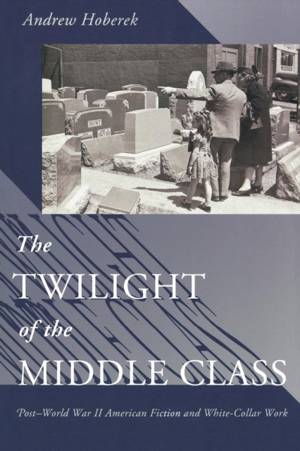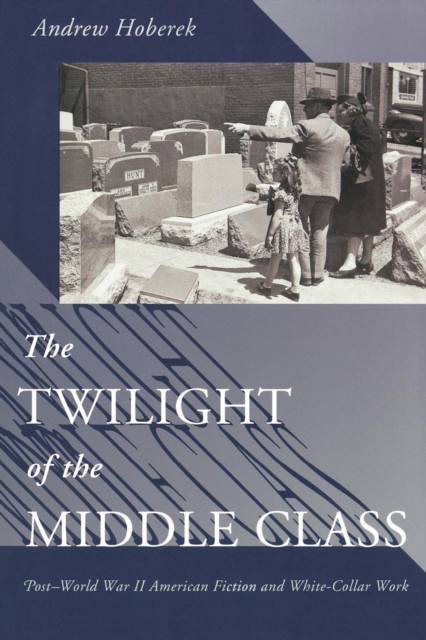
- Retrait gratuit dans votre magasin Club
- 7.000.000 titres dans notre catalogue
- Payer en toute sécurité
- Toujours un magasin près de chez vous
- Retrait gratuit dans votre magasin Club
- 7.000.0000 titres dans notre catalogue
- Payer en toute sécurité
- Toujours un magasin près de chez vous
Twilight of the Middle Class
Post-World War II American Fiction and White-Collar Work Post-World War II American Fiction
Andrew HoberekDescription
In The Twilight of the Middle Class, Andrew Hoberek challenges the commonly held notion that post-World War II American fiction eschewed the economic for the psychological or the spiritual. Reading works by Ayn Rand, Ralph Ellison, Saul Bellow, Phillip Roth, Flannery O'Connor, Thomas Pynchon, Don DeLillo, and others, he shows how both the form and content of postwar fiction responded to the transformation of the American middle class from small property owners to white-collar employees. In the process, he produces "compelling new accounts of identity politics and postmodernism that will be of interest to anyone who reads or teaches contemporary fiction.
Hoberek argues that despite the financial gains and job security enjoyed by the postwar middle class, the transition to white-collar employment paved the way for its current precarious state in a country marked by increasingly deep class divisions. Postwar fiction provided the middle class with various imaginative substitutes for its former property-owning independence, substitutes that since then have not only allowed but abetted this class's downward mobility. To read this fiction in the light of the middle-class experience is thus not only to restore the severed connections between literary and economic "history in the second half of the twentieth "century, but to explore the roots of the contemporary crisis of the middle class.Spécifications
Parties prenantes
- Auteur(s) :
- Editeur:
Contenu
- Nombre de pages :
- 176
- Langue:
- Anglais
Caractéristiques
- EAN:
- 9780691121468
- Date de parution :
- 07-08-05
- Format:
- Livre broché
- Format numérique:
- Trade paperback (VS)
- Dimensions :
- 155 mm x 236 mm
- Poids :
- 285 g

Les avis
Nous publions uniquement les avis qui respectent les conditions requises. Consultez nos conditions pour les avis.






